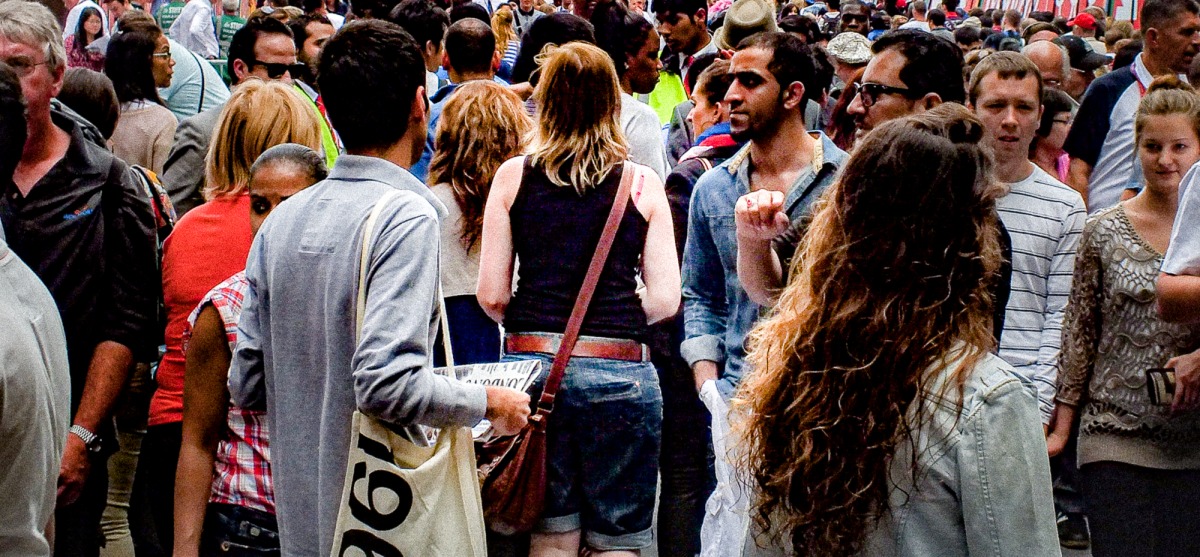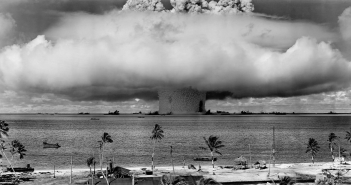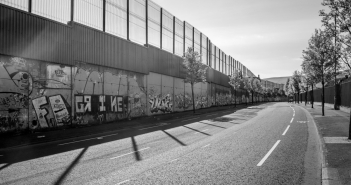In the wake of the murder by a police officer of the unfortunate Sarah Everard, and the ensuing justified anger, many media people were calling for “good” men to act more visibly in opposing violence against women. While I back 100% the calls made for “good” men to speak up, I am also concerned that the more general ideas of social equality are fast becoming reduced to a gender-specific proposition, having the potential knock-on effect of splitting the Left.
This is not to diminish the seriousness of violence against women, but only to attempt to bring to light how the focus on gender equality may be impacting our perception of more general inequality, and how this apparent narrowing of focus risks being manipulated by those whose interests are not necessarily best served by social equality.
Rosita Sweetman lays the blame for the murder of Sarah Everard, and a rise in other forms of violence against women, on a global pornography worth $97 billion.https://t.co/2RYtTMxm55@RositaSweetman @broadsheet_ie @Andrea_Rey48 @IlsaCarter1 @amandaknox #SarahEverard
— CassandraVoices (@VoicesCassandra) March 20, 2021
While many women are exploited by many men, in the wider culture there are those still looking to keep wages low; rents and the cost of living high, while reneging on any social housing provision, who will look to spin the fact of female exploitation in order to capture the female vote to the service of their own particular brand of social exploitation.
Spin
In a recent tweet, Una Mullally, responding to Josepha Madigan’s dig at the Kerryman newspaper, suggesting the paper be renamed the Kerryperson, called this out for the cynical political ploy it was. Referencing her own Irish Times article of March 8th which predicted this type of play, Mullally described Madigan’s move as an awkward Fine Gael grab for the female vote, which, as things stand, may decide the next government, as it decided the referendum in 2015.
But the main talking point in the past week has not been Fine Gael attempts to capture the female vote, but the more immediate mystery as to why “good” men don’t speak out against violence against women.
Fintan O’Toole, writing in the Irish Times on March 16th said that in order for men to make a more overt stand against violence against women they must first learn to be shocked by that violence. At the moment, he argues, such violence all seems routine to most men. I wonder about that, since it seems to suggest that silence equals complacency equals broad approval.
When you remove the particular instance O’Toole is referring to, that is, the emotive and highly charged question of violence against women, and replace it with say, general social inequality; you immediately already have an answer as to why “good” men appear to do nothing in the face of violence against women. The truth is, the majority of good men, and good women too, tend to remain strategically schtum on a wide range of problematical social issues until they see which way the political winds are blowing.
Good Men
Edmund Burke is reputed to have said that ‘The only thing necessary for the triumph of evil is for good men to do nothing.‘
Burke wrote the line in a letter in 1770, which is more than a little while ago. The point being, the good men idea is far from being new. In fact, Burke’s quote needs updating, since at the time of his writing the realization of women’s suffrage was a long way in the future. An updated version would read: ‘The only thing necessary for the triumph of evil is for good men and good women to do nothing.‘’
So instead of posing the question, Why do good men do nothing, in such a way as to refer to a specific issue – in this case male violence against women – it is perhaps clearer to ask why do good people, regardless of gender, not raise their voices in say, situations where right-wing policy creates homelessness and subsequent deaths from exposure; or privatisation results in poor services and deaths due to cut corners and profit-conscious oversights? Why do good people not raise their voices en masse on these issues too?
David Langwallner argues that we need a Renewed Deal, inspired by FDR's example in 1930s America that will bring Keynesian stabilisation measures.https://t.co/AJbSUjYWfZ@broadsheet_ie @itsmybike @PaulGilgunn @KevinHIpoet1967 @pyjamas_black @mrkocnnll @LumberBob @saoirse_mchugh
— CassandraVoices (@VoicesCassandra) March 27, 2020
By the strict criteria of the “good” men concept as framed by Edmund Burke and others, we are all responsible, good men and good women alike, for homeless deaths, for direct provision deaths, for deaths caused as a result of medical privatisation, for domestic violence in all its guises and so on. Since this is a democracy, we all, strictly speaking, bear equal responsibility for the failings of democracy to deliver equal treatment to all. But these are difficult questions when applied to the real world.
For instance, if you were an arts practitioner cosying up to Josepha Madigan when she was Minister for Arts, with a view to gaining favour and financial support for some project you had planned, are you complicit in Madigan’s rallying support to oppose Traveller accommodation? Or are the two issues compartmentalised? One being her political position and the other being her apparent social and class intolerance. Do you sacrifice your project to make a point, or do you compromise?
Herds
Along with such moral quandaries you also have the problem of the behaviour of crowds, which tend to behave like herds. Even politicians don’t really lead, they too follow the herd in the form of the public mood glimpsed in polls. Most people are spectators, going with the flow of the herd. We stand and watch the game until some critical mass is reached and then we raise our voices in support of whatever new majority appears to be on the rise. This works for every growing gang, from commies to fascists. A critical mass is reached and the herd follows. History shows that the herd will follow any old idea once this critical mass is achieved.
Søren Kierkegaard, writing on this phenomenon, noted that an individual is worth more than a crowd of individuals, because an individual has personal agency, whereas a crowd tends to go with the flow of the herd. As a result, Kierkegaard comes to the conclusion that truth always belongs to the minority, since the majority tend towards unthinking obedience to the movement of the herd.
It could be that now is the time where the issue of violence against women is to be embraced by the herd as an issue whose time has come. An issue for which good men are expected to speak up. But the point is, that apart from the particular issue, the question as to why do good people do nothing might be more properly considered in relation to a wider sense of social equality, encompassing all issues of social inequality.
This applies equally to the politician allowing the market to decide the fates of those seeking housing, as it does to the person turning a blind eye to white collar corruption, or a man turning a blind eye to violence against women.
Good Men and Good Women
In this regard, for Fintan O’Toole to suggest that the evil of violence against women is exacerbated by good men doing nothing, is disingenuous at best, or is simply more political gamesmanship.
Because the Irish Times also plays politics with notions of equality, quietly supporting right-wing Fine Gael policy through the manner in which it shapes and pitches stories, while always being first up with the property supplements when the market shifts, eager supporters of the housing Ponzi scheme, where the wealthy business class figuratively eat our young by selling them over-priced houses, while their political cronies refuse to enter into any believable form of social housing policy.
Which begs the question, that when Fintan O’Toole is calling on “good” men to be more vociferous in condemning violence against women, is he referring to the same “good” men who remain silent in the face of social inequality on a more general level, keeping strategically schtum on a range of social equality issues, in order to ensure the perpetuation of a neoliberal status quo that is giving rise to social inequality in the first place?
David Langwallner inveighs against the distinct evils of #neoliberalism and #neoconservatism that have shaped our time.https://t.co/mUXHStRe7M@broadsheet_ie @PD03662439 @IlsaCarter1 @DLangwallner @FilmWayfarers @KevinHIpoet1967 @NMcDevitt @saoirse_mchugh @Patrickttierney
— CassandraVoices (@VoicesCassandra) August 19, 2020
Conclusion
All of this is not to suggest that the call for “good” men to raise their voices on the subject of violence against women is a wasted exercise; but only to point out that such a call to “good” men is not new; and furthermore, that by repackaging that call as an issue-specific moral imperative, while ignoring the same demand across a more general range of social equality issues, is to have the effect, whether knowingly or not, of splitting the Left by narrowing the imperative of social equality to a divisive gender issue, in such a way as to assist the project of the establishment parties and the elite they appear to represent.
This will doubtless remain the situation until such time as good men and good women of all classes speak out against social inequality in all its guises.




